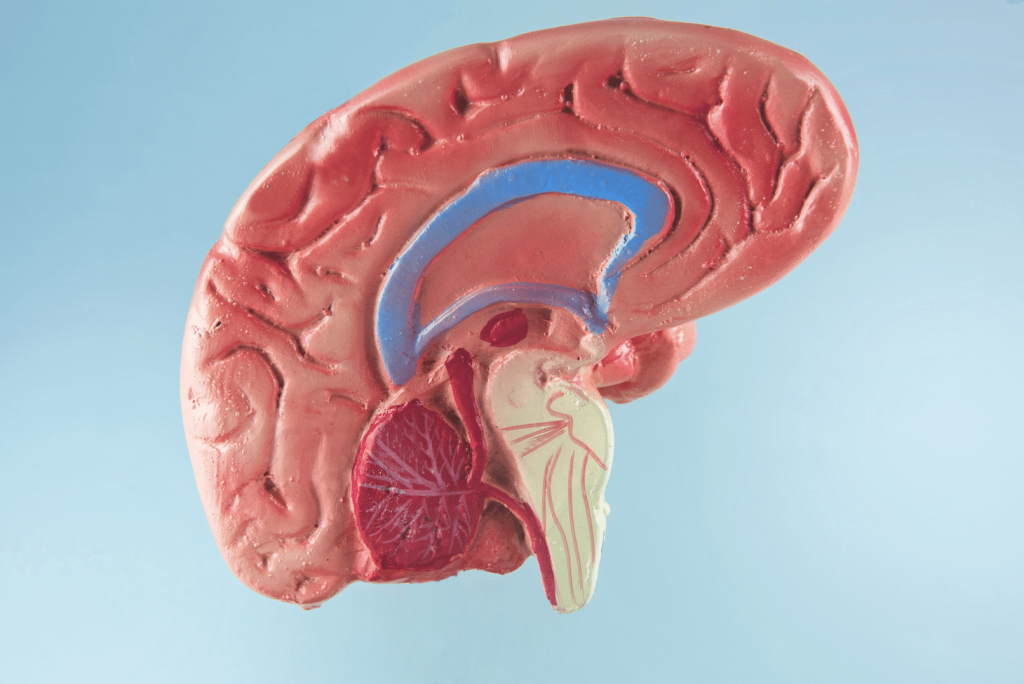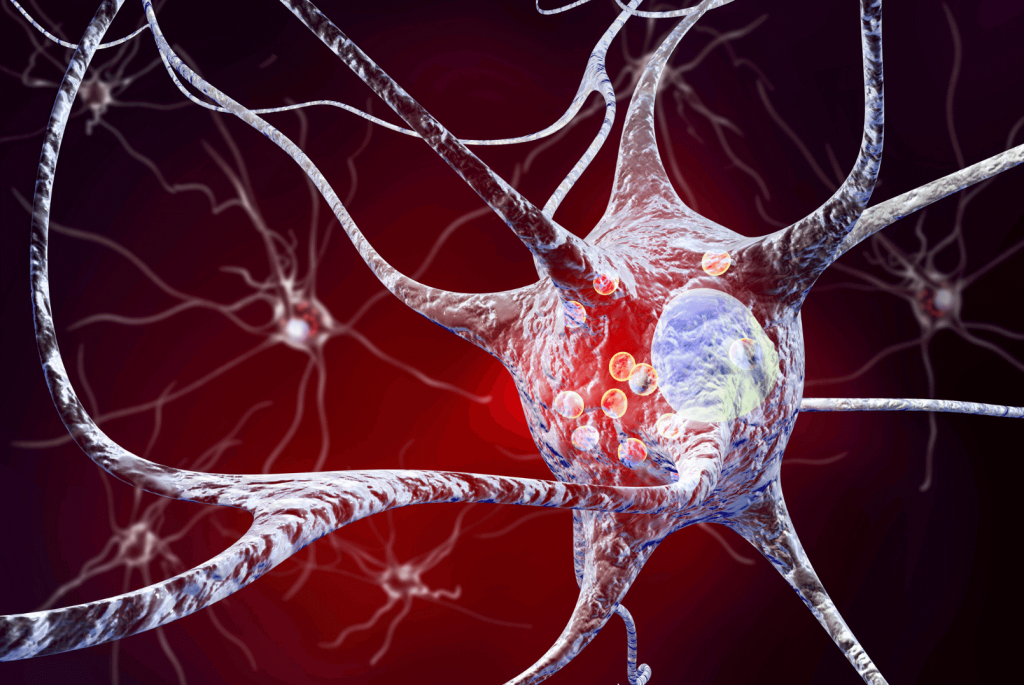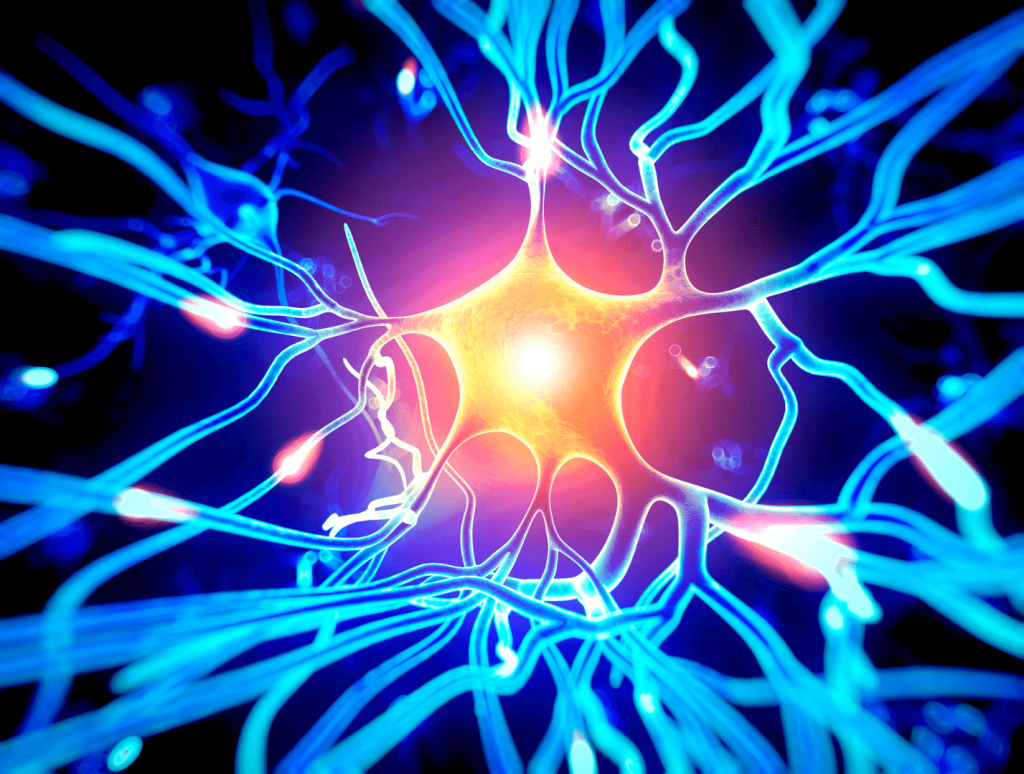Didn't your competent? doctor prescribe this stuff for you a long time ago?
omega-3 (84 posts to June 2012)
omega-3s (10 posts to July 2021)
vitamin B (10 posts to June 2013)
vitamin B1 (2 posts to June 2019)
Vitamin B12 (18 posts to December 2011)
vitamin B12 deficiency (1 posts to May 2020)
vitamin B3 (4 posts to April 2018)
vitamin B6 (2 posts to January 2019)
Lion's Mane Mushroom (3 posts to September 2021)
caffeine (117 posts to October 2011)
Neuroplasticity Supplements, Herbs, and Nootropics
What Are Neuroplasticity Supplements, Herbs, Nootropics, and How Do They Work?

Omega-3 Fatty Acids
Omega-3s, found in fish and algae oil supplements, are important for brain health.
They can potentially increase neuroplasticity through several mechanisms:
Enhancing Neuronal Membrane Fluidity
Omega-3s, such as EPA (eicosapentaenoic acid) and DHA (docosahexaenoic acid), are essential components of neuronal cell membranes. They help maintain the fluidity and flexibility of these membranes, which is crucial for efficient communication between neurons. Flexible membranes allow for easier transmission of signals and the formation of new connections, supporting neuroplasticity[1].
Promoting Synaptic Function
The proper functioning of synapses is essential for learning and memory. Omega-3s may help optimize synaptic transmission and facilitate the strengthening of synaptic connections, which are vital aspects of neuroplasticity[2].
Supporting Healthy Inflammatory Response
Inflammation in the brain can hinder neuroplasticity by disrupting communication between neurons. Omega-3 fatty acids support healthy inflammatory responses in the nervous system. Therefore,omega-3s create a more conducive environment for neural connections to form and adapt, thereby supporting neuroplasticity[3].
Increasing Brain-Derived Neurotrophic Factor (BDNF) Levels
BDNF is a protein that promotes the growth, survival, and maintenance of neurons. It is also involved in the formation of new synapses and the adaptation of existing ones, both of which are fundamental processes in neuroplasticity.
Omega-3 fatty acids, particularly DHA, increase BDNF levels in the brain, facilitating neural connectivity and enhancing the brain’s adaptive capacity[4].
Modulating Neurotransmitters
Omega-3s can influence the production and release of neurotransmitters like dopamine, serotonin, and glutamate. These neurotransmitters play central roles in cognitive processes and mood regulation. By helping regulate the balance of neurotransmitters, omega-3s can support overall brain function and emotional well-being, which are integral components of neuroplasticity[5].
Antioxidants
Antioxidants can potentially increase neuroplasticity through their ability to neutralize oxidative stress, which can impair the brain’s adaptive capacity. Antioxidants support neuroplasticity in the following ways:
Reducing Oxidative Stress (ROS)
Oxidative stress occurs when there is an imbalance between harmful ROS and the body’s antioxidant defenses. Excessive oxidative stress can damage neurons and their components, including DNA, proteins, and lipids[6].
Antioxidants neutralize ROS and help protect neurons from this damage, preserving their function and viability. Healthy neurons are better equipped to engage in neuroplasticity.
Protecting Mitochondrial Function
Mitochondria are the energy-producing organelles within neurons. Oxidative stress can impair mitochondrial function, leading to energy deficits and decreased neuronal plasticity[7][8]. Antioxidants can help maintain mitochondrial health by mitigating oxidative damage, ensuring neurons have the energy they need to support neuroplasticity.
Inflammation Modulating Effects
Unmodulated Chronic inflammation in the brain can hinder neuroplasticity by disrupting the normal functioning of neurons and glial cells[9]. Antioxidants, by modulating inflammation, create a more favorable environment for neural plasticity. They can modulate immune responses, supporting overall brain health[10].
Promoting BDNF Production
As previously mentioned, BDNF is a protein that plays a crucial role in neuroplasticity. Some antioxidants, such as flavonoids found in certain fruits and vegetables, increase the production of BDNF[11]. Elevated BDNF levels facilitate the formation of new synapses and strengthen existing ones, which are essential aspects of neuroplasticity[12].
B Vitamins
B vitamins play an important role in brain health and can support neuroplasticity through several mechanisms:

Neurotransmitter Production
B vitamins, particularly B6 (pyridoxine), B9 (folate), and B12 (cobalamin), are essential for the synthesis of neurotransmitters such as serotonin, dopamine, and norepinephrine. Ensuring an adequate supply of these B vitamins helps maintain neurotransmitter balance, which is important for neuroplasticity[13].
Homocysteine Regulation
Elevated levels of homocysteine, an amino acid, are associated with an increased risk of cognitive decline. B vitamins, specifically folate, B6, and B12, help regulate homocysteine levels in the body. B vitamin supplementation may help reduce the risk of cognitive impairment and support overall brain health, including neuroplasticity[14].
DNA Methylation and Synaptic Plasticity
DNA methylation is an epigenetic process that can influence gene expression. B vitamins, particularly folate, play a role in DNA methylation, which can affect the expression of genes involved in synaptic plasticity. Proper methylation patterns are necessary for the formation and strengthening of synaptic connections, a fundamental process in neuroplasticity[15].
Protection Against Oxidative Stress
B vitamins, including niacin (B3) and riboflavin (B2), are involved in your body’s antioxidant defenses. Antioxidants help protect neurons from oxidative stress, which can damage cell membranes, proteins, and DNA. By reducing oxidative stress, B vitamins support the health and function of neurons and facilitate neuroplasticity[16].
Mood Regulation
B vitamins are known to play a role in mood regulation, and mood is closely linked to cognitive function and neuroplasticity. For example, B6 is involved in the production of serotonin, a mood-enhancing neurotransmitter. Balancing mood can indirectly support cognitive processes and neuroplasticity[16].
A balanced diet with foods rich in B vitamins, such as leafy greens, legumes, nuts, and fortified cereals, can provide the necessary nutrients to support brain health and neuroplasticity. However, in cases of deficiency or certain medical conditions, B vitamin supplementation may be recommended under the guidance of a healthcare professional.
Lion’s Mane Mushroom (Hericium erinaceus)
Lion’s mane mushroom (Hericium erinaceus) is a natural dietary supplement that has gained attention for its potential to support neuroplasticity and overall brain health. While the exact mechanisms of how lion’s mane mushroom influences neuroplasticity are still being researched, there are several ways it may contribute to this process:
Nerve Growth Factor (NGF) and pro-BDNF Stimulation
Lion’s Mane Mushroom contains compounds known as hericenones and erinacines, which have been shown in some studies to stimulate the production of nerve growth factor (NGF). NGF is a protein essential for the growth, maintenance, and survival of neurons.
By promoting NGF production, Lion’s Mane Mushroom may facilitate the growth of new neurites (extensions of nerve cells) and the formation of new synaptic connections, which are key aspects of neuroplasticity[17].
Lion’s Mane Mushroom supplements increase levels of pro-BDNF, which is a precursor to BDNF. Pro-BDNF is synthesized and released by neurons and is involved in synaptic pruning which is an important process of neuroplasticity[18].

Enhanced Myelination
Myelin is the protective sheath that covers nerve fibers and enhances the efficiency of signal transmission between neurons. Lion’s Mane Mushroom may support myelination by promoting the growth and differentiation of oligodendrocytes, the cells responsible for myelin production.
Improved myelination can lead to faster and more efficient communication between neurons, potentially enhancing neuroplasticity[19].
Antioxidant Properties
Lion’s Mane Mushroom is rich in antioxidants, which help combat oxidative stress and reduce damage to neurons caused by free radicals. Oxidative stress can impair neuronal function and hinder neuroplasticity. By reducing oxidative stress, Lion’s Mane Mushroom may create a more favorable environment for synaptic plasticity and neural adaptation[20].
Inflammation-Balancing Effects
Lion’s Mane Mushroom has immune-balancing properties, which may help promote a healthy inflammatory response and thus a healthier environment for synaptic remodeling and plasticity[21].
Improved Cognitive Function
Some studies suggest that lion’s mane mushroom supplementation can lead to improved cognitive function, including memory and learning. Enhanced cognitive abilities can indirectly support neuroplasticity by facilitating the acquisition of new information and the formation of new neural connections[22].
While there is promising research on the potential benefits of Lion’s Mane Mushroom for neuroplasticity, more studies are needed to fully understand its mechanisms and effects.
Individual responses to Lion’s Mane Mushroom may vary, and its use should be approached with caution, especially if you have any underlying medical conditions or are taking medications. As with any dietary supplement, it’s advisable to consult with a healthcare professional before incorporating lion’s mane mushroom into your routine.
Caffeine
Caffeine is a stimulant that primarily affects the central nervous system, and while it is more commonly associated with increasing alertness and concentration, it can also have some indirect effects on neuroplasticity.

Enhanced Cognitive Function
Although there is no clear consensus, some studies suggest that caffeine can temporarily improve cognitive function, including attention, memory, and learning.
By increasing alertness and mitigating the sensation of fatigue, caffeine may help individuals engage more effectively in cognitive tasks that require neuroplasticity, such as learning new information or adapting to changing circumstances. This enhanced cognitive function can indirectly support neuroplasticity by facilitating the acquisition and processing of new information[23].
Stimulation of Neurotransmitter Release
Caffeine stimulates the release of certain neurotransmitters, including dopamine and norepinephrine, in the brain. These neurotransmitters play roles in mood regulation, attention, and arousal. Increased neurotransmitter activity can enhance alertness and focus, potentially aiding in the engagement of cognitive processes associated with neuroplasticity[24].
Improved Synaptic Transmission
Caffeine can enhance synaptic transmission, the process by which signals are transmitted between neurons at synapses. It can increase the release of neurotransmitters like glutamate, which is crucial for synaptic plasticity and learning.
By promoting more efficient signaling between neurons, caffeine can indirectly support the strengthening and formation of neural connections, essential aspects of neuroplasticity[25].
Neuroprotective Effects
Some studies suggest that caffeine has neuroprotective properties, which means it may help protect neurons from damage caused by factors like oxidative stress and neuroinflammation. By preserving the health of neurons, caffeine can create a more conducive environment for neuroplasticity to occur[26].
By blocking adenosine receptors, caffeine enhances alertness, potentially influencing neural activity and learning. This heightened neuronal firing, along with potential BDNF elevation, might foster an environment conducive to neuroplasticity. However, individual responses to caffeine vary, and excessive intake can lead to negative effects[23].
The caffeine’s effect on neuroplasticity can vary among individuals and depend on factors such as the dose of caffeine consumed and an individual’s tolerance to caffeine.
While moderate caffeine consumption may have some potential cognitive benefits, excessive caffeine intake can lead to side effects, including anxiety, jitteriness, and disrupted sleep, which can ultimately impair cognitive function and neuroplasticity[23].
Additionally, the long-term effects of chronic caffeine use on neuroplasticity are still an active area of research, and more studies are needed to fully understand the relationship between caffeine and brain plasticity. It’s advisable to consume caffeine in moderation and be mindful of its potential side effects, especially if you have underlying medical conditions or are sensitive to caffeine[23].
Bacopa Monnieri
Bacopa monnieri, commonly known as Brahmi, is an herb used in traditional medicine, particularly in Ayurveda, that is believed to have several cognitive-enhancing properties, including the potential to increase neuroplasticity[27].
Although no research has directly shown that Bacopa monnieri directly causes neuroplasticity, here are some ways Bacopa monnieri may influence neuroplasticity:
Enhanced Synaptic Transmission
Bacopa monnieri is thought to enhance synaptic transmission, which is the process by which neurons communicate at synapses. It may increase the release of neurotransmitters like acetylcholine, which is important for learning and memory[28].
Improved synaptic transmission can facilitate the strengthening and formation of neural connections, a key aspect of neuroplasticity.
Neuroprotective Effects
Bacopa monnieri is rich in antioxidants, which help protect neurons from oxidative stress and damage caused by free radicals. By preserving the health of neurons, Bacopa monnieri can create a more conducive environment for neuroplasticity to occur[29][30].
Modulation of Neurotransmitters
Bacopa monnieri may influence the levels and activity of various neurotransmitters, including serotonin, dopamine, and GABA (gamma-aminobutyric acid). Modulating neurotransmitter activity can indirectly support neuroplasticity by enhancing cognitive function and emotional well-being[29][31].

Stress Reduction
Chronic stress can impair cognitive function and hinder neuroplasticity. Bacopa monnieri may promote calmness and enhance mood[28][32]. By mitigating stress, it can create a more favorable environment for the brain to engage in neuroplasticity processes.
Enhanced Memory Consolidation
Bacopa monnieri may help with improved memory retention and consolidation. The formation of long-term memories involves synaptic plasticity, and enhancing memory processes can indirectly support neuroplasticity[28].
Neurotrophic Factor Modulation
Some research suggests that Bacopa monnieri may influence the expression of brain-derived neurotrophic factor (BDNF), a protein critical for the growth, survival, and adaptability of neurons. Elevated BDNF levels facilitate the formation of new synapses and the strengthening of existing ones, fundamental processes in neuroplasticity[29].
Supplements, herbs, and nootropics show promise in enhancing neuroplasticity, which is crucial for brain adaptability and cognitive health. Omega-3 fatty acids, antioxidants, B vitamins, Lion’s Mane Mushroom, and caffeine can potentially support neuroplasticity through various mechanisms.
These compounds aid in maintaining neuronal health, promoting synaptic function, balancing inflammation, and enhancing neurotransmitter activity.
While these supplements offer exciting potential, individual responses vary, necessitating consultation with healthcare professionals, especially for those with underlying health conditions. A well-balanced diet rich in these nutrients can also contribute to brain health and cognitive adaptability.
These supplements offer a promising avenue for individuals seeking to improve cognitive function and overall well-being.
References at link.
No comments:
Post a Comment